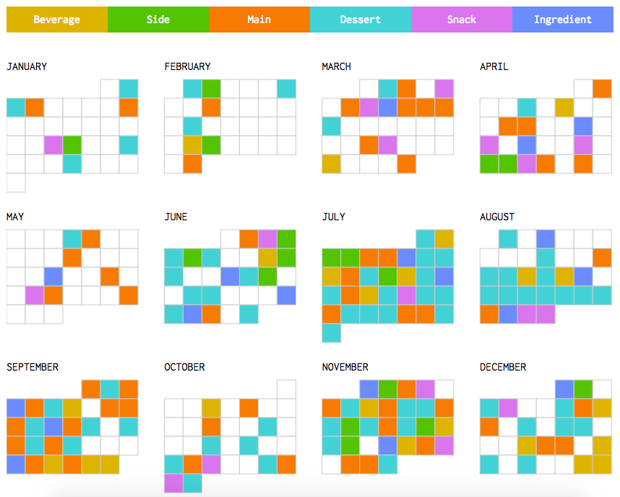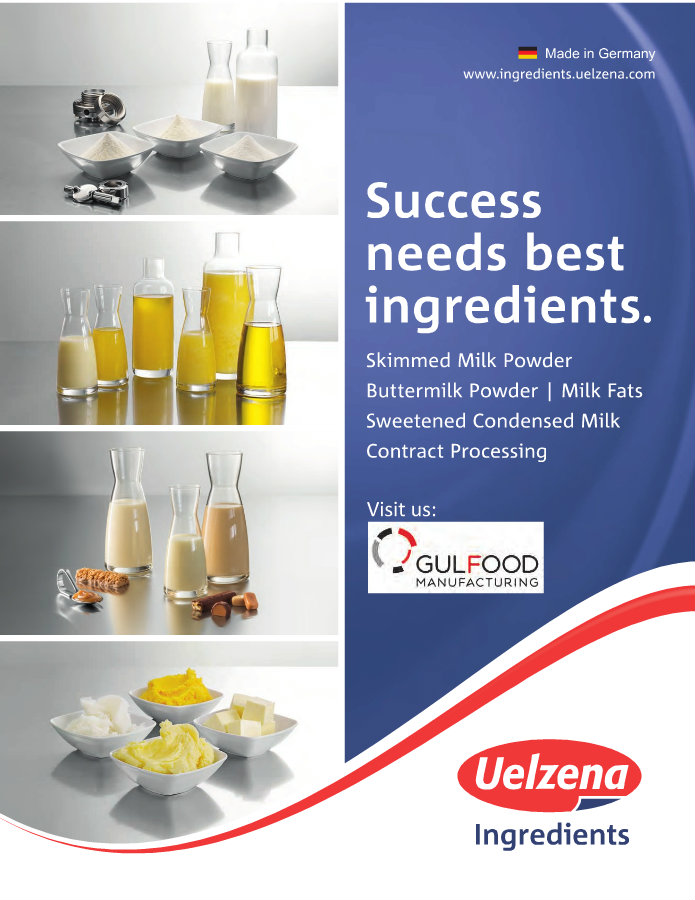But really, why aren't there more local food fests?

You just missed National Bratwurst Day (August 16). But President Obama remembered. (Kevin Lamarque/Reuters)
Remember what you ate on July 22? Don’t tell me it didn’t include a silky square of caramel candy, because that, in America, was the National Day of Penuche Fudge. And let me guess: You also missed June 28, when you were supposed to celebrate ceviche.
Do better next year with the help of Nathan Yau at Flowing Data. Yau has compiled and color-coded 214 national food holidays of record in a friendly hover-over calendar, for no other reason than to support and validate the consumption of fêted food items. Click through to his website to explore all the ways you can party.
Seeing an entire year of national food days in one place makes you appreciate a few things. One is that there appears to be no logic to the timing of many observances. (July 4, for example, has been set aside as a day to celebrate Caesar salad.) The other is that there are way too many of these things.
Of course, the “official” status of most of these holidays is as arbitrary as the dates they’re often assigned. The vast majority of them are products of food associations trying to raise awareness and sales by prodding Americans to eat more toasted marshmallows, clams, and zucchini bread (not on the same day, you freak). It’s a PR gag that dates back at least to the beginning of the 20thcentury—one of the first ingredient-related holidays, National Apple Week, was first declared in 1904. There’s also nothing stopping any intrepid individual or restaurateur from declaring their own national food day and advertising it to death. In fact, some enthusiasts have even made a hobby out of copyrighting and pitching oddball holidays to Chase’s Calendar of Events, the annual publication that’s kept track of noteworthy dates since the early 1950s, when the U.S. Chamber of Commerce gave up on this tawdry charade. (Most of the events on Yau’s calendar seem to align with Chase’s.)
Some of these fake holidays are properly official, as a few past presidents have actually taken the time to make delicious proclamations with congressional backing. Eisenhower declared a time for walnut appreciation, while Reagan designated a national day of ice cream (“a nutritious and wholesome food,” according to the official document—especially if you put ketchup on top) and another day for catfish (which, apparently, had “come a long way from their bottom-feeding ancestors”). President Obama has signed into record many occasions for celebration and remembrance, from National Safe Boating Week to America Recycles Day, but seems to have had little appetite for food holidays. (Or perhaps Congress is too divided even to settle stomachs.)
Do food producers actually see any results from such promotional efforts? In 2007, a New York Times story reported that apple sales jump up as much as 25 percent during the three-month-long fête des pommes. But most dishes and food items that these holidays celebrate are so specific—today is National Pecan Torte Day, y’all—it’s hard to imagine that they have much economic impact on the national level.
On a city level, though, events honoring local specialties make more sense. Annual kielbasa bashes, cheesesteak fests, and taco raves could (and do) draw hungry bellies to local restaurants, food trucks, and fairgrounds. And small-scale annual festivals are some of the best ways for cities to bring in crowds and dollars year after year. Hey mayors, why not declare a day of gorging?





